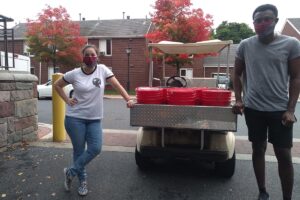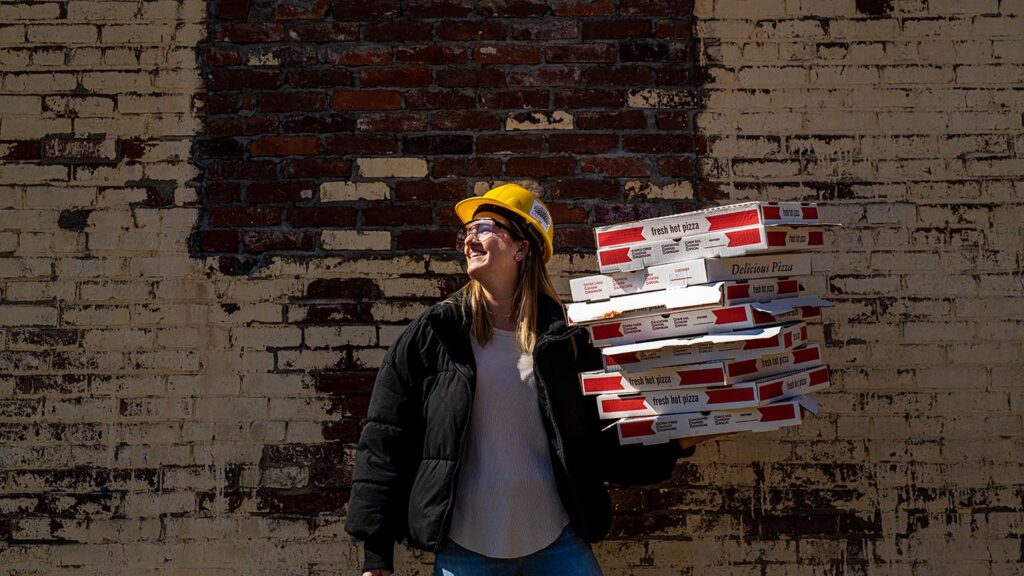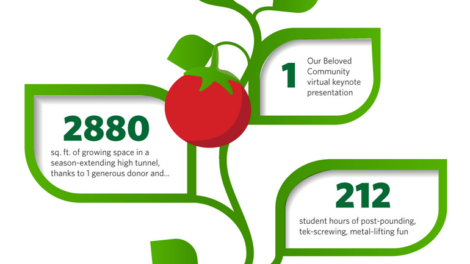Keep on Composting
LaFarm continues to be the heart & home of Lafayette’s sustainable food loop. Like everything, this took an unexpected turn in 2020. When a small portion of our student body returned to campus in the fall, our compost team pivoted to collecting back-of-house waste.
 We loaded up collected and composted 1,875 pounds of campus food waste in 3 months of collection. By diverting this nutrient-rich resource from the landfill, we instead generate compost to increase our soil’s carbon sequestering and water-holding capacities.
We loaded up collected and composted 1,875 pounds of campus food waste in 3 months of collection. By diverting this nutrient-rich resource from the landfill, we instead generate compost to increase our soil’s carbon sequestering and water-holding capacities.
In spring of 2020, senior engineering students in Art Kney’s Civil Engineering Capstone took on the ultimate composting challenge: how to increase Lafayette’s diversion rate to 60% by 2035 to meet our Climate Action Plan goal.
The goal is clear: We need to expand Lafayette’s composting initiatives to include all food and biological waste on-campus, including the 10 tons of annually-generated grease-stained pizza-boxes, while partnering with the City of Easton to expand municipal composting. Unexpectedly, planning turned virtual, but students didn’t slow down in completing a comprehensive campus-wide analysis of on-site composting. Stay tuned for how we turn proposal into reality, or waste into fertility, and then back into food.

Emily Rabens ’20 carries a sampling of Lafayette’s used pizza boxes. Photograph by Adam Atkinson
